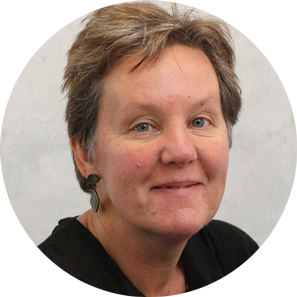
Dr. Sue Jamieson
Senior Lecturer, Biosciences (Physiology), Health Sciences, School of Medicine, University of Central Lancashire (UCLAN), UK.
Dr. Sue Jamieson uses Lt LabStation to deliver practical, lab-based lessons to students studying medicine and medical sciences.
Sue recently transitioned to Lt LabStation from its predecessor, LabTutor. Because of Lt LabStation’s improved functionality and modern interface Sue has seen an increase in student engagement, independence, and confidence. As a teacher, she finds Lt LabStation much easier to navigate and is looking forward to authoring her own lessons.
How do you use Lt LabStation?
Recording real-life signals
In physiology so we really need to use human participants and human data in our practicals, so I love that Lt LabStation allows students to record data that's actually meaningful to them! Rather than just being given a random bit of data, they collect real-life signals which mean something to them personally. I can see their change in engagement and it just makes the whole learning experience much more valuable. It really helps us to bring bioscience to life!
Expanding the scope of lessons
Also, Lt LabStation has allowed us to expand our repertoire of practical lessons. My specialist area is cardiorespiratory control so we do lab-based work in that area, as well as exercise, so use of Lt LabStation’s data logging capacity a lot. Recently we've started doing measurements of expired gas volumes, which is quite unusual, and the students are quite intrigued by it!
Preparing students for practical lessons
In class, I use screenshots or a bit of the video from Lt LabStation to show students what they are about to do. Then, the students go ahead and use Lt LabStation to do their experiment. They are much more confident because what I’ve shown them relates directly to what they are seeing and doing in the class itself. This helps them to focus on the connections between the measurements they are taking and the diseases that they’re studying in the class.
Why did you choose Lt LabStation?
We chose Lt LabStation because we really wanted the ability to record a wide variety of different signals, simultaneously. For example, if I'm doing some exercise work, or environmental work, then I might want to record sweat rate, body temperature, and skin temperature at sites all over the body. Or perhaps I want to record heart rate, ECG, blood pressure, as well as expired and inspired gases. Combining Lt LabStation with PowerLabs for data collection has been really, really useful for recording and analyzing the interaction between many signals all at once, to really fill out a bigger picture.
What do you like about Lt LabStation?
I love that Lt LabStation makes science more accessible for students. In the past, I've used a full-on technical kit which needed to be calibrated using gasses and external calibration equipment. But, for students, Lt LabStation is ideal. It includes videos that walk students through each step of how to set up a piece of equipment. Students can work at their own pace and it makes them much more confident and independent.
What is better about Lt LabStation compared to LabTutor?
We had a lot of connectivity issues with LabTutor. The fact that we can use Lt LabStation offline is just fantastic. It makes our practical lessons so much easier.
Also, Lt LabStation’s appearance on the screen is much simpler: far fewer words, better pictures, and the explanations are clearer. It's just a lot easier for students to use. They can scroll through at the pace they need and I’m finding that they can work out much more for themselves. In the past with LabTutor they were skipping whole sections, but now they are actually working through all of the lesson material!
Which Lt LabStation feature have you found most useful?
At the start, Lt LabStation’s ready-made lessons and labs let me hit the ground running and have given me the space to get to know the program. Now that I’m comfortable with it, I’m looking forward to authoring my own lessons in the coming year.
Dr. Sue Jamieson joined UCLAN’s School of Medicine in January 2016, and lectures in Physiology, mainly on the MBBS, BSc Medical Sciences and Physicians’ Associates programs. She has a particular interest in the areas of cardiorespiratory control, physiology in extreme environments and physiology of physical activity.



